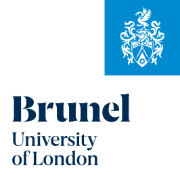Two-arm, parallel RCT of Brief opportunistic Smoking cessation Advice for financially Vulnerable Individuals accessing financial Support (SAVINGS) with embedded pilot phase, economic and process evaluations
Background
Smoking prevalence increases with socioeconomic deprivation, exacerbating health inequalities. Providing brief opportunistic advice for quitting smoking, delivered within financial guidance settings, could be a quick, cost-effective way to reach vulnerable populations. This could help alleviate disparities and reduce financial strain.
Aims
This study aims to evaluate the impact of a very brief, opportunistic, smoking cessation advice compared to usual care, provided by financial guidance services.
Methods
We will recruit 1,538 individuals who smoke daily and are accessing a financial guidance service (e.g. social housing, debt advice or other social service settings). Participants will be randomised into receiving the very brief smoking cessation advice or usual care (769 in each group).
The intervention involves approximately one minute of advice about quitting smoking, the financial benefits of quitting, the best ways to quit and support available. They will be sent an e-cigarette starter kit and advised about different forms of behavioural support available.
We will assess the number of participants who have quit smoking at 12 weeks (biochemically verified by saliva sample) and 9 months.
Further Information can be found on Oxford SAVINGS Trial page
Privacy Notice: How we use your research data
Funding
| Funders(s) | National Institute of Health and Care Research. HTA project number: NIHR158844 |
|---|---|
| Start Date | April 2025 |
| End Date | March 2029 |
Members
YTU Team
- Catherine Hewitt - Co-Investigator
- Jude Watson - Co-Investigator and YTU Project Lead
- Lesley Sinclair – Trial Manager
- Jess Hugill-Jones – Trial Coordinator
- Izzy Briggs – Trial Support Officer
- Chloe Smith - Trial Support Officer
- Fraser Wiggins - Statistician
- Alyson Jayne - Trainee Statistician
External Members
- Dr Nicola Lindson – University of Oxford and Nuffield Department of Primary Care Health Sciences
- Dr Charlotte Albury – University of Oxford
- Professor Stavros Petrou – University of Oxford
- Dr Paul Doody – University of Oxford
- Professor Subhash Pokhrel – University of Oxford
- Dr Andy McEwan - National Centre for Smoking Cessation and Training
- Dr Sophia Papadakis - National Centre for Smoking Cessation and Training
- Dr Sharon Cox – University College London
- Professor Caitlin Notley – Norwich Medical School
- Dr Angela Wu – Nuffield Department of Primary Care Health Sciences




![]()
